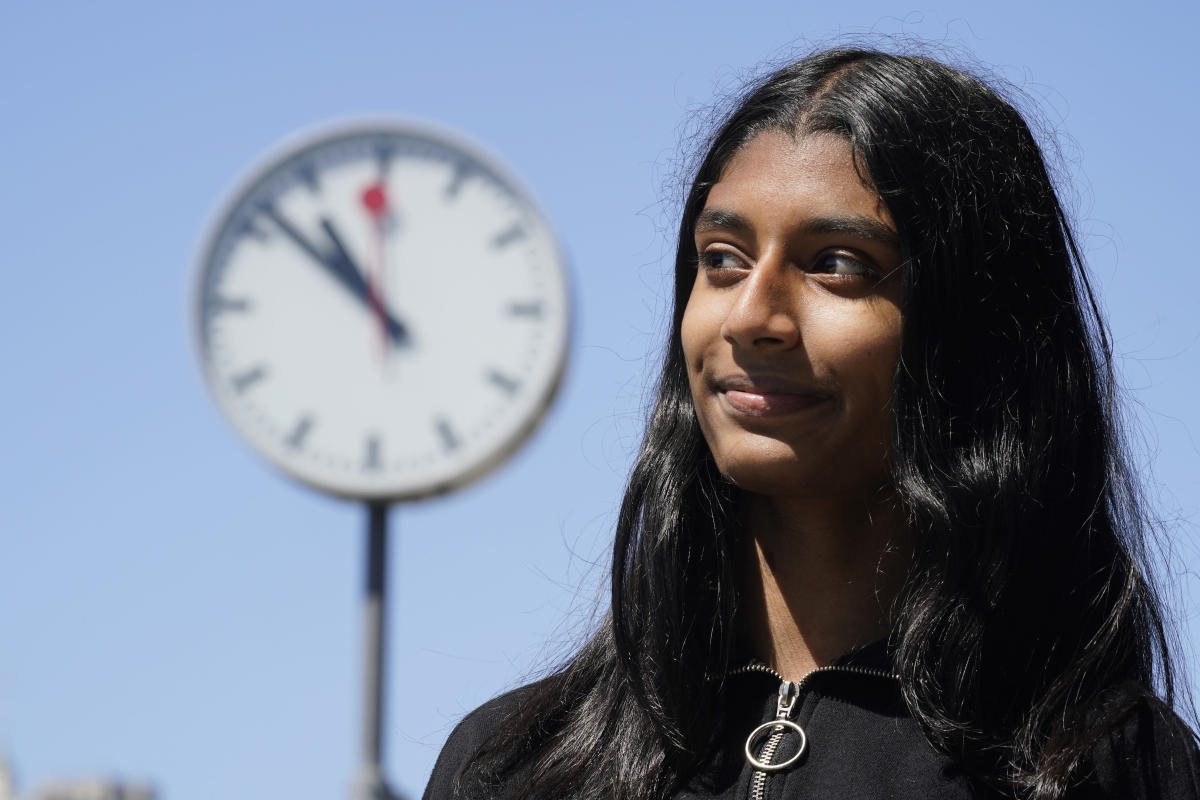When Hansika Daggolu’s freshman year of high school starts in the fall, she’ll look to see if a later first bell under a new California law means fewer classmates sitting at their desks for afternoon naps.
The general mood, she suspects, will also improve if her classmates at Mission San Jose High School in Fremont are not so sleepy.
“I’m really excited and I’m so happy this is happening,” said Hansika (15), who said she no longer has to get out of bed before 7am to be at school at 8am.
As of this fall, high schools in the country’s most populous state will not be allowed to start before 8:30 a.m. and high schools cannot begin before 8:00 a.m. under a 2019 law banning earlier start times. Similar proposals are before lawmakers in New Jersey and Massachusetts.
Proponents say that teens perform better in school when they are more alert, predicting even broader effects: a reduction in suicides and teen car accidents and improved physical and mental health.
“We know that teens are the most sleep-deprived age group, and the root cause is our own public policies,” said Joy Wake, who helped lead the efforts of the “Start School Later” group in California.
The average start time for the country’s high schools was 8 a.m. in 2017-18, but according to the National Center for Education Statistics, about 42% started earlier, including 10% who started before 7:30 a.m. The 2011-12 high school start times, the most recent available from NCES, were similar.
That’s too early for adolescents whose bodies are wired to stay up later than at other ages because of a delayed release of the sleep hormone melatonin, scientists say. The American Academy of Pediatrics recommends middle and high schools begin at 8:30 a.m. or later. The Centers for Disease Control and Prevention recommends eight to 10 hours of sleep per night for 13 to 18-year-olds.
After finishing eighth grade and taking all of ninth grade remotely due to COVID-19 closures, Hansika said it was hard enough to move from the shortened, less structured days to more challenging courses at a new school without also fighting to stay alert. Distance learning allowed her to sleep until she checked in for school in her bathrobe and take a nap after classes finished around 12:30pm. That changed when schools reopened last year.
“In some parts of the year, sleep deprivation was also an issue for me, so there are a lot of factors that come together,” she said. She doesn’t expect to stay up any longer because of the service next year.
Opponents of changing start times often present logistical challenges, such as shifting bus routes and after-school schedules and disrupting family routines built around existing school and work schedules.
As California debated the change, Orange County Superintendent of Schools Al Mijares feared it would disproportionately hurt students from working-class and single-parent families.
“While it may be easy enough for some families with flexible schedules to adapt, in some communities, parents who work to make ends meet don’t have the luxury of putting off the start of their workday,” he wrote in a 2019 opinion piece for the nonprofit Cal Matters.
Wake replies that it’s impossible to go to school at a time that suits everyone’s work schedule, “but you can pick a time that doctors say is healthier and safer for teenage children.”
According to Start School Later, bills related to school start times have been introduced in at least 22 US states in recent years, albeit with limited success.
“Adolescents who don’t get enough sleep face a variety of health risks, including being overweight, drinking alcohol, smoking tobacco and using drugs, as well as poor academic performance,” according to New Jersey legislation introduced in April by Assembly Speaker Craig Coughlin and Sen. Vin Gopal, Chairman of the Education Committee.
It calls for start times of 8:30 a.m. or later statewide.
The New Jersey School Boards Association has opposed the effort to let local districts set their own schedules.

